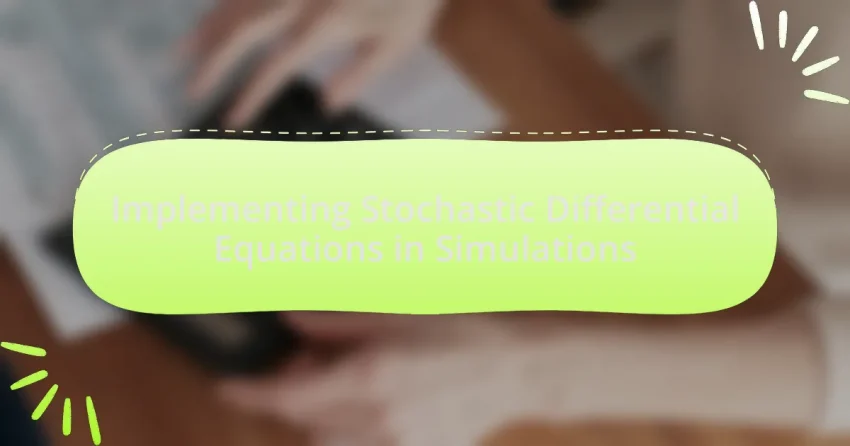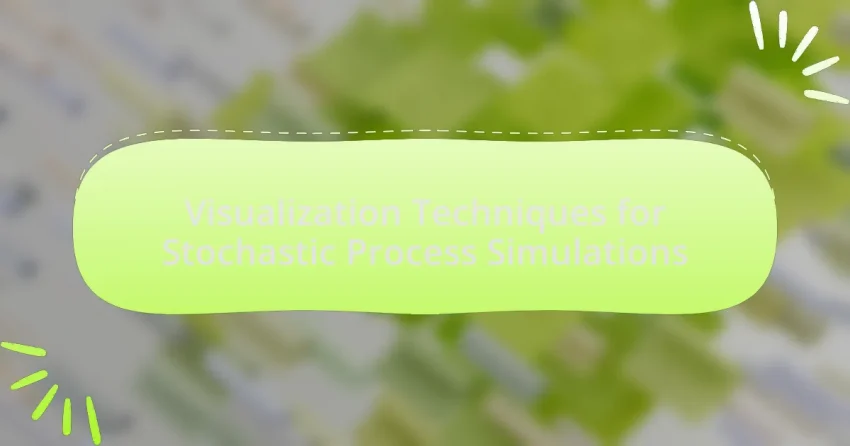Monte Carlo methods in stochastic processes are computational algorithms that utilize repeated random sampling to derive numerical results, particularly in complex systems where analytical solutions are challenging. This article explores the relationship between Monte Carlo methods and stochastic processes, highlighting their key characteristics, applications in fields such as finance and engineering, and their significance in…
Simulation Techniques
Welcome to the world of Simulation Techniques! In this category, you’ll discover a rich collection of articles that dive into the various methods used to model real-world systems. These techniques are essential in fields like engineering, healthcare, and social sciences. From simple simulations to complex algorithms, each piece aims to demystify the processes and tools that professionals use to predict outcomes and make better decisions.
As you explore, you’ll find practical guides, case studies, and insightful analyses. Whether you are a student curious about simulations or a professional looking to refine your skills, these articles are designed for you. You’ll learn about the importance of simulations, how to implement them, and their impact on innovation and efficiency. Get ready to engage with content that will enhance your understanding and open new pathways in your learning journey!
Implementing Stochastic Differential Equations in Simulations
Stochastic Differential Equations (SDEs) are mathematical models that incorporate randomness to describe dynamic systems influenced by uncertainty, widely applied in fields such as finance, physics, and biology. This article explores the fundamental characteristics of SDEs, their differences from ordinary differential equations, and their significance in modeling real-world phenomena. It also discusses various numerical methods for…
Analyzing Simulation Output: Statistical Techniques for Stochastic Processes
Analyzing simulation output in stochastic processes is a critical process that involves interpreting data generated from simulations modeling random phenomena. This article explores the definition of simulation output, key characteristics of stochastic processes, and the statistical techniques employed for analysis, such as descriptive statistics, confidence intervals, and hypothesis testing. It highlights the importance of analyzing…
Visualization Techniques for Stochastic Process Simulations
Visualization techniques for stochastic process simulations encompass various methods, including Monte Carlo simulations, state-space representations, and graphical tools such as histograms and scatter plots. These techniques enhance the understanding of stochastic processes by providing intuitive representations of complex data, allowing researchers to identify patterns and trends that may not be evident in numerical data alone….



